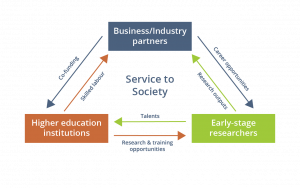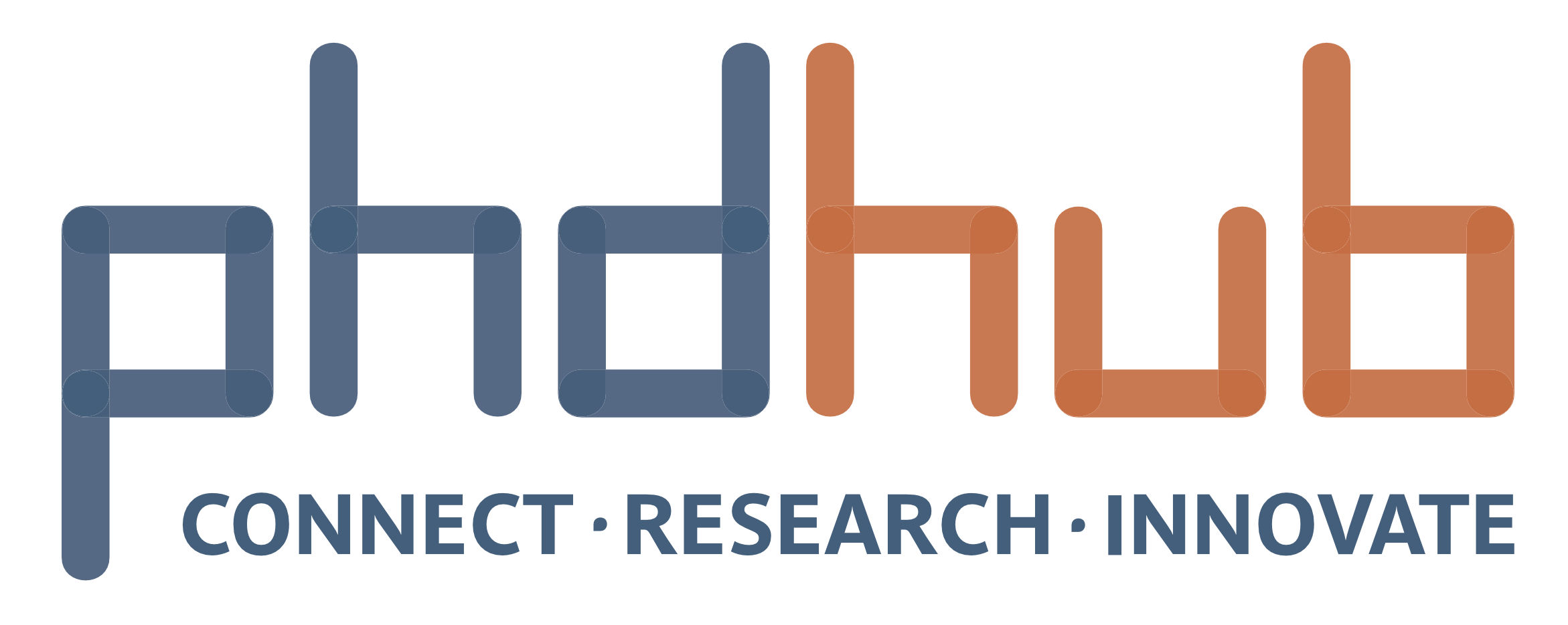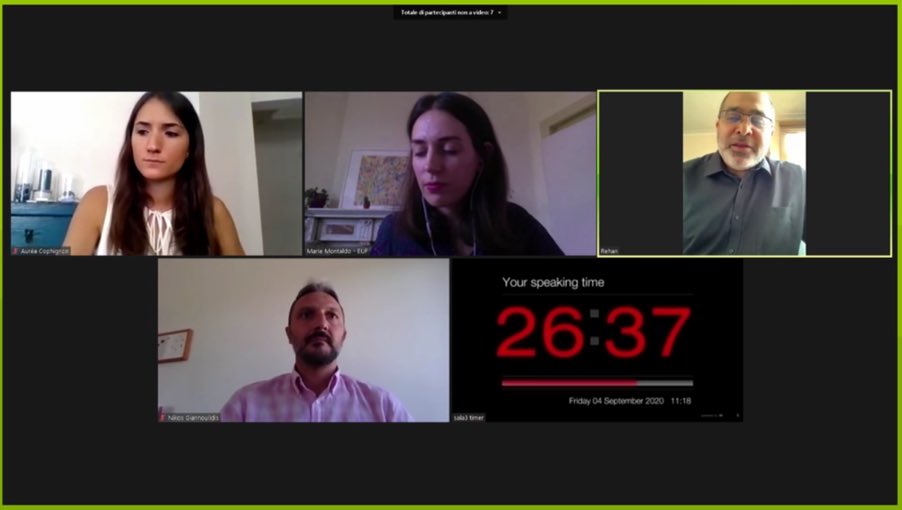The ESOF conference, one of the largest European conferences on science and innovation, was hosted this year in the 2020 European Capital of Science, Trieste as well as online between September 2-6.
Marie Montaldo (EUF), Auréa Cophignon (Eurodoc), Rehan Bhana (BCU) and Nikos Giannoulidis (ECSA) – our squad of European PhD Hub partners offered a lively session on “Regional Innovation Ecosystems connected at European level”. Here are our takeaways and what may spark your interest:
It is needless to say, we need to bridge the gap between Science and Business. There is a lack of transferability of research results into industry and society and a need for a truly European Research Area (ERA). The PhD Hub provides the missing link between industry, academia and society.

One of the biggest challenges to university-business cooperation at local or European level is the cultural differences between those two entities. Are industry and academia like oil and water? Rehan and Nikos both support that the primary factor of success for sustainable relations and win-win collaboration is to ensure that your development and cooperation strategies are aligned (expectations management) right from the very beginnings of the collaboration.
Academia and Industry have different timelines and goals. While the first is a large and curiosity-driven entity that runs thorough research, the latter is profit-driven and requires to be both agile and impact-aware in their environment. Innovation ecosystems need to build on pragmatism and be results-driven. Higher education institutions can provide skilled labour and talents, as well as anchor an entrepreneurial vision into their mission and activities.
Innovation ecosystems (commonly called “local Hubs” in the PhD Hub project), which foundations rely on the equal investment of both industry and academia, offer a valuable framework on which early-stage researchers and the whole research community can develop an additional set of skills and competences. Auréa believes that transferable skills training and the interdisciplinary nature of the Local Hubs provide such opportunities to young researchers.
The international aspect is furthermore important. Connecting local Hubs at European level is a great opportunity for all actors and break the silos in research. It is therefore essential to put in touch all actors together to ensure that our society can answer the many challenges of the present and future. One example is the timely and global response to the coronavirus crisis in which the contribution of all European bright minds and a swift transfer of knowledge to society is critical.

